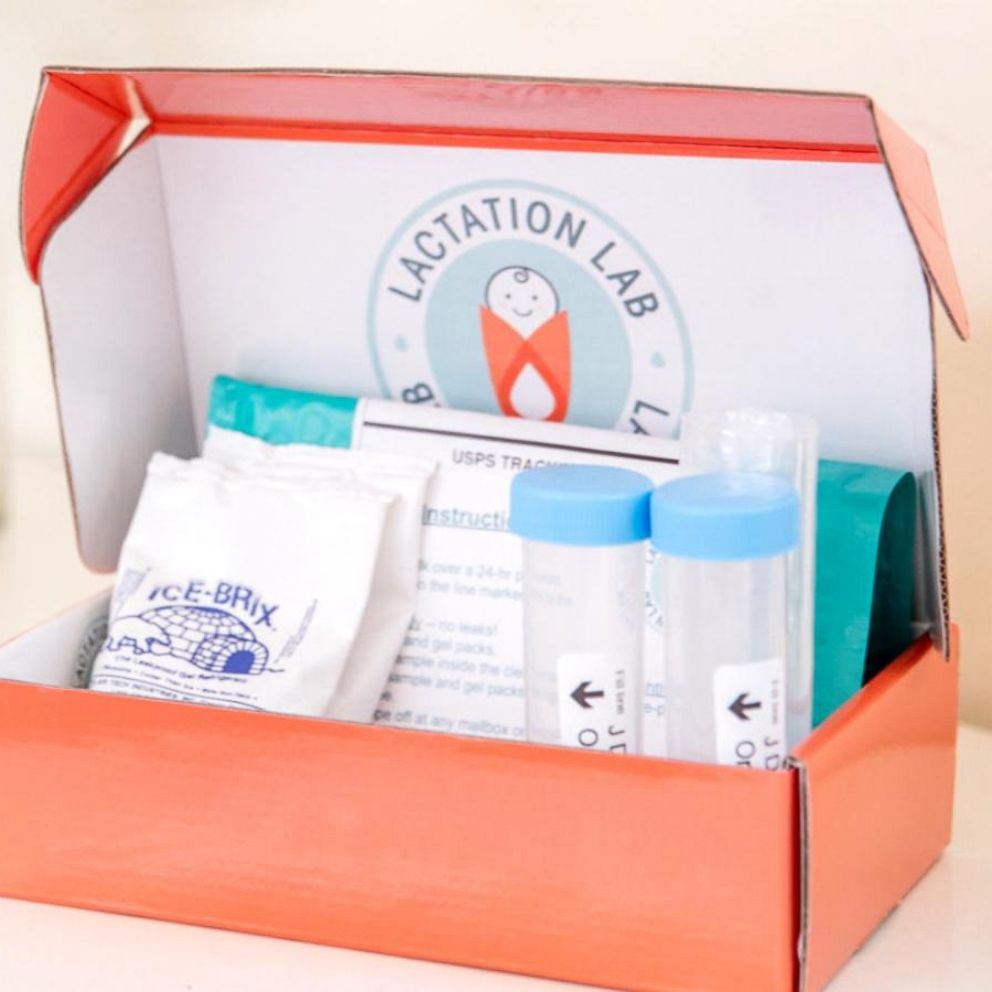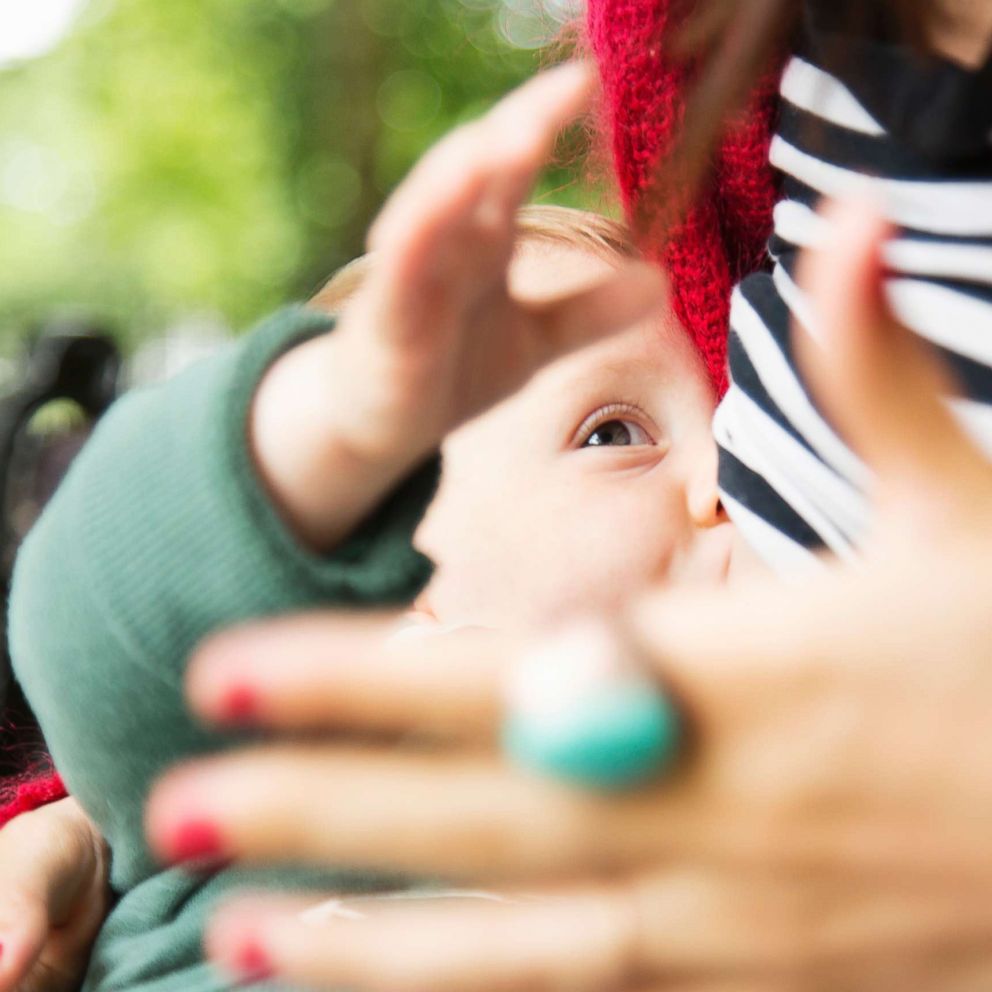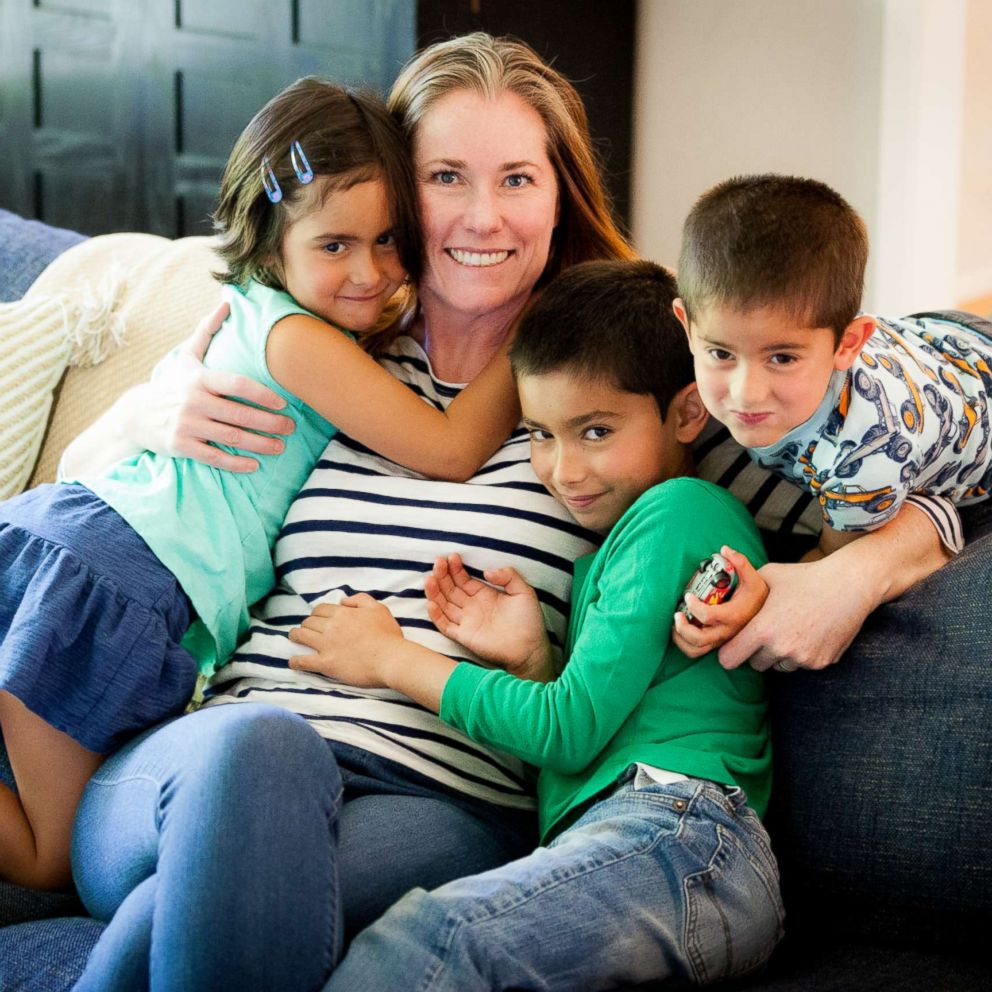Moms turn to Facebook to donate breast milk. How safe is it?
The FDA recommends against the practice, but moms are still donating.
When Tiffany Riedel had a surplus of milk from breastfeeding her daughter Kinsley, now 1, she did not have to look far to find a fellow mom who wanted the milk for her own child.
Riedel, who lives in Michigan, turned to a breast milk donation group she found on Facebook.
"I donated about 1,500 ounces to four different moms," Riedel told "Good Morning America." "They each came to my house to pick it up."
Riedel is part of a new wave of moms who have discovered the ability of social media to connect mothers who have a surplus of breast milk to other moms who cannot or do not want to breastfeed their child -- or those that can but need a bigger supply.
"This has been occurring since the beginning of time," Diane Spatz, director of the lactation program at Children's Hospital of Philadelphia, said of moms sharing breast milk. "Hundreds of years ago when there wasn’t formula and they couldn't breastfeed, they went to another friend or neighbor or family member and that person fed the baby."
"But until recently milk sharing hasn’t even been something that was talked about," she added. "It was like put in a closet and locked away."
The Mothers' Milk Bank that Spatz leads at CHOP is part of the Human Milk Banking Association of North America, an organization that voluntarily oversees nonprofit milk banks in the U.S. that supply donated breast milk to babies who are medically in need. There are only 27 HMBANA-endorsed milk banks across the U.S.
Because milk banks first give donated milk to babies who are critically in need -- and because the screening process milk banks use makes it cost-prohibitive for most families -- many people turn to Facebook, family and friends for help.
"Parents with healthy kids don’t really have an option other than to feed their baby formula or access milk some other way," said Spatz. "And people understand that human milk really is a lifesaving medical intervention that helps babies grow and thrive."
A search on Facebook for breast milk donation groups brings up dozens of options with thousands of members. Conversations about donated breast milk also start in Facebook support groups for moms who are breastfeeding.
That is how Kristen Stojakovic, 34, of Pittsburgh, ended up donating 600 ounces of breast milk she pumped for her 6-month-old son, Slater, to a stranger who lives more than an hour away.
"A mom posted to see if anyone had extra for her adopted 7-month-old-son," said Stojakovic. "I already knew I wanted to donate because I had a lot of breast milk and my freezer was full and I saw her post and thought, 'Well this is a great opportunity."
"It’s definitely like a sisterhood," she said of the chains of donations. "I think when you start being able to help not only your own child but also someone else's, you feel really proud and want to be able to help."
Stojakovic followed what experts say are best practices for both the donors of breast milk and the parents who accept it.
She voluntarily disclosed all of her medical information, shared where she stores her breast milk, and shared details about her lifestyle, like being a non-smoker. She also checked via the Facebook group to make sure the mom was a "legitimate person in need."
The U.S. Food and Drug Administration recommends against feeding babies' breast milk acquired online or through an individual, according to guidelines on its website.
Parents who have consulted with a healthcare provider and decided to feed their baby with donated human milk should only "use milk from a source that has screened its milk donors and taken other precautions to ensure the safety of its milk," according to the FDA.
The American Academy of Pediatrics recommends exclusive breastfeeding for the first six months of a baby’s life, followed thereafter by breastfeeding plus other appropriate, nutritious foods, citing a body of evidence that shows breast milk is nutritionally, economically and ecologically superior to formula or other breast milk substitutes.
The AAP also advises parents against using "Internet-based or informal human milk sharing," explaining that those sources of breast milk "carry the risk of bacterial or viral contamination, or exposure to medications, drugs, herbs or other substances"
Spatz said it's critically important that families who do choose to get donated breast milk know how to access it in the safest way possible.
"I think how families have to think about it is, in everything we do in our life we should be making a risk-benefit analysis," she said. "Everyone is making on a daily basis decisions about their health and lifestyle, and providing a baby with human milk is no different."
"Most health professionals are going to say, 'Don’t milk share. It’s risky. Don't do it,'" Spatz added. "But if a woman really thinks human milk is important for their child, they’re going to do it because they’ve done their homework."
Spatz's No. 1 tip for parents is to not purchase donated breast milk online.
"If you’re giving someone money, that person may be motivated differently because they’re getting money," she said. "You want someone who is doing this altruistically because they want to help you."
Her second tip is for parents to feel empowered to ask their donor about her health history, including her medical labs, medication use, history of alcohol and drug use and lifestyle. That conversation should also include asking the mom how she stores her milk and making sure she safely cleans and sanitizes her breast pump.
"Most breastfeeding mothers are not going to be engaging in behaviors that are not safe for their own child, but it's still important for families who want milk to be having these open and honest conversations," she said.
Research shows that donated breast milk is not a direct equivalent of a mom's own breast milk, but it is better than formula for babies, according to Spatz.
Moms produce breast milk with antibodies that are a direct response to their baby's needs at that moment. The composition of a mom's breast milk also changes as the child grows older, so breast milk donated by the mom of a 1-year-old may not meet the nutrient needs of a newborn who is being fed donated breast milk.
"For the first two weeks [after giving birth] the mother’s job is just to eat, sleep and breastfeed so she gets the right supply," she said. "We really need to absolve moms of all other responsibilities but making milk for the baby."







